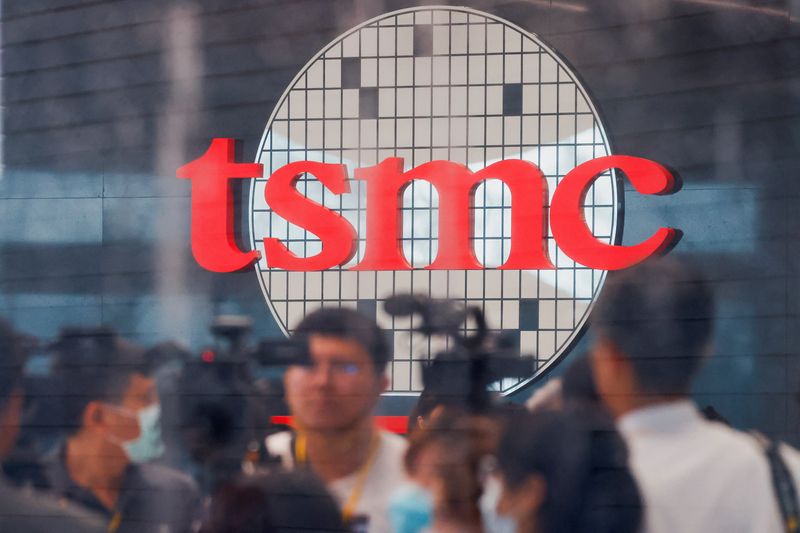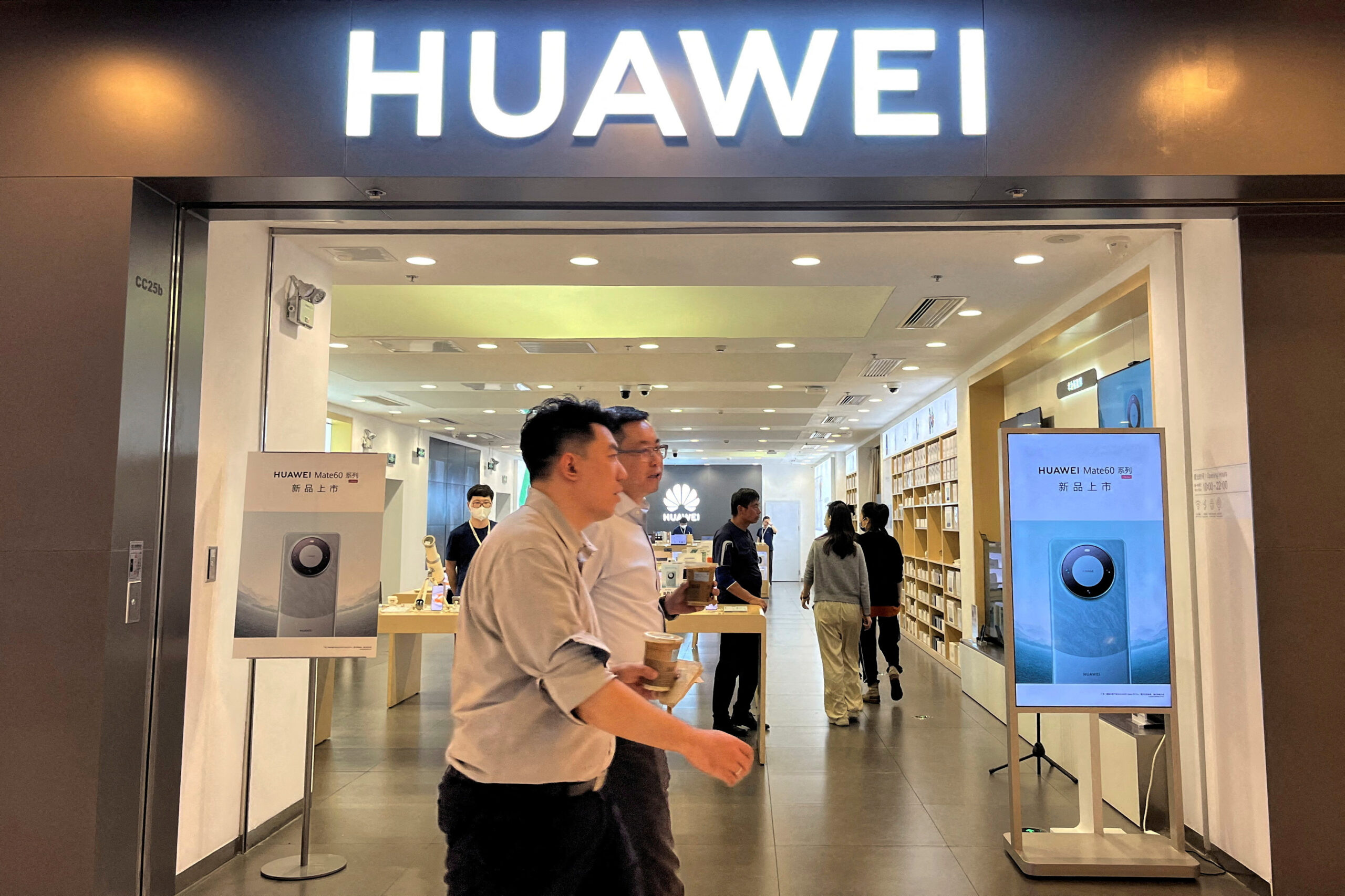Apple Suppliers Slide on China Anxiety, Threat from Huawei
Apple suppliers are seeing a decline due to concerns over China and competition from Huawei. As tensions rise between the US and China, Apple’s reliance on Chinese suppliers may lead to potential disruptions in their supply chain, impacting their business.
Additionally, Huawei’s growing presence in the smartphone market poses a threat to Apple’s market share and profitability. We will explore the implications of these factors on Apple and its suppliers, as well as the potential strategies Apple may employ to mitigate the risks they face.
Impact Of Huawei’S Rise On Apple Suppliers
Apple suppliers experience declining sales and growing concerns due to Huawei’s rapid rise in the Chinese market, leading to anxiety and threats for Apple’s supply chain.
Apple’S Reliance On Chinese Suppliers:
- Apple, one of the leading smartphone manufacturers, heavily relies on Chinese suppliers for its production needs due to cost-effectiveness and expertise in manufacturing.
- Chinese suppliers contribute significantly to Apple’s supply chain, providing essential components like displays, batteries, and semiconductors for its devices.
- Apple’s reliance on these suppliers has strengthened its business model, allowing for efficient production and quick delivery of its products.
Overview Of Huawei’S Growth In The Smartphone Market:
- Huawei, a Chinese telecommunications company, has experienced remarkable growth in the smartphone market over the years.
- With a combination of cutting-edge technology, competitive pricing, and strategic marketing, Huawei has emerged as a formidable competitor to Apple.
- Huawei’s innovative features, such as advanced camera systems and powerful processors, have attracted a significant consumer base, especially in Asia and Europe.
How Huawei’S Success Threatens Apple’S Market Share:
- Huawei’s rise in the smartphone market poses a threat to Apple’s market share, primarily due to its competitive pricing and comparable product quality.
- Huawei offers high-quality smartphones at more affordable prices, making them an attractive option for price-conscious consumers.
- As Huawei gains popularity, consumers who were previously loyal to Apple may consider switching to Huawei for their next smartphone purchase, potentially impacting Apple’s market dominance.
Impact Of Huawei’S Rise On Apple Suppliers’ Stocks:
- The success of Huawei and its growing market share directly affects Apple’s suppliers and their stocks.
- As Huawei gains market share, Apple suppliers face the risk of reduced demand for their components from Apple.
- A potential decrease in orders from Apple could lead to a decline in revenue and profitability for these suppliers, impacting their stocks’ performance in the market.
Apple’s heavy reliance on Chinese suppliers can be both advantageous and disadvantageous. While it allows for efficient production and cost-effectiveness, Huawei’s rise in the smartphone market poses a threat to Apple’s market share. Consequently, Apple suppliers may experience a negative impact as the demand for their components from Apple decreases.

Credit: www.investing.com
Apple Suppliers’ Concerns And Challenges
Apple suppliers are facing concerns and challenges due to China’s anxiety and the threat posed by Huawei. Their shares are sliding as they navigate these obstacles in the market.
The potential loss of Apple’s orders:
- With the current global climate of uncertainty, Apple suppliers are increasingly concerned about the potential loss of orders from the tech giant.
- This apprehension stems from the escalating trade tensions between the US and China, as well as the ever-growing threat posed by Huawei in the smartphone market.
- Apple suppliers, heavily reliant on the stability of the company’s orders, are worried about the impact this could have on their businesses.
Impact of US-China trade tensions on Apple suppliers:
- The ongoing trade tensions between the United States and China have sparked worry among Apple suppliers.
- The imposition of tariffs and retaliatory measures by both countries has created an unstable environment for international trade.
- This uncertainty directly affects Apple suppliers, who rely on the smooth global supply chain facilitated by international trade.
- Any disruption in this chain could result in factory closures, job losses, and a significant financial blow to these suppliers.
Decreased demand for Apple products from China:
- Apple suppliers are facing a considerable challenge due to the decreased demand for Apple products from China.
- The US-China trade tensions have fueled anti-US sentiment, leading to a rise in the preference for domestic brands in China, such as Huawei.
- This shift in consumer sentiment has adversely affected Apple’s sales in the Chinese market, hampering the demand for Apple products.
- Consequently, Apple suppliers are grappling with a decline in orders, exacerbating their concerns.
Rising competition from Huawei for Apple suppliers:
- Competition from Huawei, a leading Chinese smartphone manufacturer, has been intensifying for Apple suppliers.
- Huawei’s continuous innovation and expanding market share have significantly impacted Apple’s position in the smartphone industry.
- As Huawei gains ground globally, Apple suppliers are facing the challenge of maintaining their partnerships with Apple amidst the rising competition.
- The allure of working with Huawei, a brand on the rise, poses a threat to Apple suppliers’ business relationships and market share.
Strategies For Apple Suppliers To Navigate Challenges
Apple suppliers are facing challenges from China and competition with Huawei, but they can navigate these obstacles with strategic measures. By diversifying their customer base, adopting innovative technologies, and focusing on quality and sustainability, suppliers can stay ahead in the market.
Apple suppliers are facing increasing challenges due to China anxiety and the threat from Huawei. To overcome these obstacles and ensure their ongoing success, suppliers should consider implementing the following strategies:
Diversifying Their Customer Base:
- Identify other potential customers within the technology industry and beyond.
- Explore opportunities to supply components or services to companies outside of the Apple ecosystem.
- Seek partnerships with emerging tech firms or start-ups.
Targeting Non-Apple Customers:
- Conduct market research to identify potential non-Apple customers who may be seeking reliable suppliers.
- Create tailored marketing and sales strategies to appeal to these customers.
- Showcase the benefits of choosing their products or services over competitors.
Expanding Into Other Industries:
- Assess the feasibility of expanding into industries such as automotive, healthcare, or telecommunications.
- Adapt products or services to meet the specific requirements of these industries.
- Leverage relationships with Apple to explore potential cross-industry collaborations.
Strengthening Relationships With Apple:
- Maintain open communication channels with Apple representatives to stay informed about their future plans and requirements.
- Proactively address any concerns or challenges raised by Apple.
- Collaborate with Apple on research and development initiatives to further enhance the partnership.
Negotiating Favorable Contracts:
- Assess and renegotiate existing contracts to ensure fair pricing and favorable terms.
- Explore options for long-term contracts to provide stability and predictability.
- Emphasize the value and uniqueness of their offerings in contract negotiations.
Investing In Research And Development:
- Allocate resources for continuous research and development to stay ahead of industry trends.
- Identify opportunities to create innovative solutions that can differentiate them from competitors.
- Leverage their expertise and experience as Apple suppliers to develop cutting-edge technologies.
Adapting To Changing Market Conditions:
- Monitor market trends and anticipate changes in customer demand.
- Stay agile and adaptable to pivot their product offerings or business models accordingly.
- Regularly assess their strategies and make adjustments as necessary to stay competitive.
Developing New Products And Services:
- Identify gaps in the market and develop new products or services to fill those gaps.
- Leverage their existing capabilities and expertise to create innovative solutions.
- Collaborate with Apple or other partners to co-create new offerings.
Investing In Emerging Technologies:
- Stay up-to-date with emerging technologies such as artificial intelligence, augmented reality, or blockchain.
- Explore partnerships or investments in companies working on these technologies.
- Position themselves as leaders in adapting to and leveraging emerging tech.
By implementing these strategies, Apple suppliers can mitigate the challenges posed by China anxiety and the threat from Huawei. Remaining proactive, adaptable, and innovative will enable them to navigate the evolving market landscape and maintain their relevance as key players in the industry.
Future Outlook For Apple Suppliers
Apple suppliers are feeling the pressure as China anxiety and competition from Huawei weigh on the tech giant’s future outlook. The slide in supplier performance has raised concerns about the long-term stability of the supply chain.
The current state of Apple suppliers is being influenced by China anxiety and the growing threat from Huawei. The uncertainty surrounding these factors raises concerns about the future outlook for these suppliers. However, there are steps that Apple suppliers can take to mitigate risks and adapt to the changing market dynamics.
Additionally, the role of innovation in sustaining growth cannot be underestimated, as it opens up potential opportunities for Apple suppliers amid the challenges they face. Let’s explore these aspects in more detail:
How Apple Suppliers Can Mitigate Risks And Adapt:
- Diversification of customer base: Apple suppliers can reduce their dependency on Apple by broadening their customer base across different industries or finding additional clients in the tech sector. This will help to offset potential losses if Apple faces challenges.
- Strengthening relationships with Apple: Maintaining strong relationships with Apple will be crucial for suppliers. By providing exceptional quality and service, suppliers can build trust and ensure continued collaboration.
- Expanding geographical presence: Exploring new markets beyond China can help mitigate risks associated with the geopolitical tensions. Diversifying production and distribution sites can ensure a more stable supply chain, minimizing disruptions.
- Embracing emerging technologies: Adoption of innovative technologies, such as automation and artificial intelligence, can enhance operational efficiency and reduce costs. Embracing these advancements allows suppliers to stay competitive in the evolving market.
The Role Of Innovation In Sustaining Growth:
- Development of advanced components: Apple suppliers can focus on developing cutting-edge components that meet the ever-growing demands of the tech industry. By investing in research and development, suppliers can position themselves as pioneers in their respective fields.
- Collaboration with Apple in product development: Working closely with Apple in the early stages of product development can enable suppliers to gain insights into future trends and align their capabilities accordingly. This strategic collaboration can result in long-term growth opportunities for suppliers.
Potential Opportunities For Apple Suppliers Amid Challenges:
- Supplier realignment: As Apple navigates challenges, it may look to re-evaluate and realign its supply chain. This presents an opportunity for existing suppliers to adapt and fill any gaps, potentially gaining a larger share of Apple’s supply network.
- Expansion into other markets: Apple suppliers can explore partnerships and opportunities in emerging markets with a growing consumer base for Apple products. Expanding their presence beyond traditional markets can lead to new revenue streams.
Long-Term Implications Of Huawei’S Threat On Apple Suppliers’ Stocks:
- Shifts in market dynamics: The rise of Huawei as a formidable competitor to Apple could disrupt the market share of Apple suppliers. This may result in fluctuations in stock prices and profitability for these suppliers.
- Dependency on Apple’s success: Apple suppliers have traditionally relied on Apple’s success for their own growth. Any significant shifts in the market dynamics may have a long-term impact on the stocks and performance of these suppliers.
While the current landscape poses challenges for Apple suppliers, there are avenues to navigate and potentially thrive in this evolving market. By adapting to changing trends, focusing on innovation, and seeking opportunities beyond traditional markets, Apple suppliers can position themselves for future success.
Frequently Asked Questions For Apple Suppliers Slide On China Anxiety, Threat From Huawei
Why Are Apple Suppliers Sliding?
Apple suppliers are sliding due to China anxiety and the threat posed by Huawei. The escalating trade tensions between the US and China have raised concerns about the impact on supply chains and future demand for Apple products. Additionally, Huawei’s expanding presence in the smartphone market has raised questions about Apple’s market share and potential competition.
What Is The Impact Of China Anxiety On Apple Suppliers?
China anxiety has negatively impacted Apple suppliers as it raises concerns about the stability of the Chinese market, which is a key manufacturing hub for Apple products. The uncertainty surrounding trade relations between the US and China has led to a cautious approach by Apple suppliers, affecting their stock prices and business outlook.
How Does Huawei Pose A Threat To Apple Suppliers?
Huawei poses a threat to Apple suppliers as their growing market share and technological advancements in the smartphone industry challenge Apple’s dominance. With Huawei offering competitive products at lower prices, Apple suppliers face the risk of reduced demand for components used in Apple devices.
This adds pressure on their business performance and profitability.
Conclusion
As Apple suppliers continue to face challenges due to China anxiety and the threat from Huawei, it is evident that the tech industry is experiencing a significant shift. With the growing tension between the United States and China, coupled with Huawei’s rise in the global market, Apple’s position as a leading tech giant is being challenged.
This uncertainty has resulted in a decline in Apple’s supplier stocks, signaling a concern among investors. In order to navigate these challenges, it is crucial for Apple to adapt and strategize for the changing market dynamics. This may include diversifying its supply chain, exploring alternative markets, and enhancing its product offerings to stay ahead in the industry.
Despite the current obstacles, Apple has a track record of resilience and innovation, which may serve as an advantage in overcoming these obstacles. Overall, the evolving landscape of the tech industry demands constant adaptation and resilience. With careful planning and strategic decisions, Apple can continue to thrive in an ever-changing global market.














Post Comment